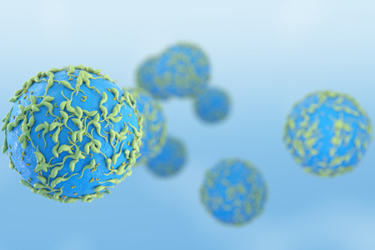A New Paradigm In T-Cell Lymphoma Treatment: CD5 CAR-NK
By Seungryel Han and Miyoung Jung, GC Cell

T-cell lymphomas (TCLs) are a rare and aggressive subset of non-Hodgkin lymphomas, accounting for 10–15% of cases. Their incidence is rising, particularly among older adults, intensifying the urgent need for more effective treatment strategies. Standard therapies, such as CHOP-based chemotherapy and hematopoietic stem cell transplantation (HSCT), are often inadequate, resulting in poor response rates, high toxicity, and frequent relapses. In many cases, three-year survival rates drop below 50%, and overall survival can be less than six months, particularly in relapsed or refractory patients.
One of the primary challenges in treating TCLs is their biological heterogeneity, which hinders the development of broadly effective therapies. Brentuximab vedotin, a CD30-directed antibody-drug conjugate (ADC), has demonstrated success in certain CD30-positive subtypes, but its applicability is limited. Despite ongoing efforts to develop small molecules and antibodies targeting novel pathways, treatment outcomes in relapsed/refractory TCL remain poor, with progression-free and overall survival typically averaging just one year. This bleak outlook emphasizes a critical unmet need for new therapeutic approaches that address both the complexity and aggressiveness of TCLs. Advancing our understanding of TCL biology and identifying new molecular targets will be essential for improving outcomes and offering hope to patients with this challenging cancer type.
Get unlimited access to:
Enter your credentials below to log in. Not yet a member of Outsourced Pharma? Subscribe today.
